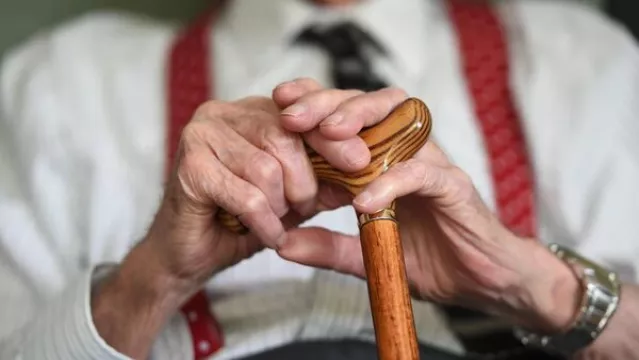A son's power of attorney does not give him the authority to make personal care decisions for his 90-year-old father, including where he should live, the High Court has ruled.
Mr Justice Conleth Bradley made the ruling to resolve an issue between the son and the 90-year-old's daughter over a decision to take the father out of a nursing home, so he can go back home where he has expressed a wish to die.
The judge said the son's enduring power of attorney was executed in 2016 and registered in February 2022.
The son had begun to notice a decline in his father's cognitive and physical abilities in early 2019.
In or around July/August 2019, both the son and the daughter became concerned about their father's ability to live independently.
They began to make arrangements to have him cared for at home, but after a short period of time with the carers in place, the father expressed a resistance to the carers and a reluctance to allow them into his home.
From then on, for almost a year, both the son, and in particular the daughter, provided support for their father in his home, visiting him and bringing him meals.
The judge said the evidence was that the father's general condition began to regress from around November 2019 and progressively worsened.
He was admitted to hospital on two occasions, in March and June 2020, due to an infection.
Nursing home
Around September 2020, during the Covid-19 pandemic, after the father and daughter attended a medical appointment for him, the medical advice at that time expressed an increasing concern about him living alone.
It was suggested that it was in his best interests, including for health and safety reasons, that he move to a nursing home.
Around October 2020, the father was accepted into residential nursing home care.
It was agreed between the brother and sister that it was in their father's best interests to tell him that this would be for an initial two to three-week period of respite care.
He has remained there since, but in August 2023 it was decided between the brother and sister to give effect to their father's wish to be discharged back home.
However, it was also agreed that before this happens, a full and comprehensive assessment would have to be carried out.
The father said he did not wish to undergo such an assessment, and his GP agreed that the father's decision should be respected. The GP therefore declined to make a referral for such an assessment.
The daughter made a complaint under the Assisted Decision-making Act 2015 in relation to her brother acting as attorney. This, the judge observed, perhaps marked the crystallisation of the "point of disharmony" between the siblings.
Power of attorney
A decision on the power of attorney matter must be made by a service set up under the 2015 Act, called the Decision Support Service. It said it would be making a decision on the sister's complaint before March 16th.
This, the judge said, precipitated the sister bringing an application to the High Court for a determination on whether the 2016 power of attorney was such as to give her brother the authority to make personal care decisions for the father, including where he should live.
Mr Justice Bradley said the 2016 enduring power of attorney instrument appointed the son as attorney with general authority to act in relation to all his father's property and affairs. The judge said affairs in this context mean business or financial affairs.
It also stated that the authority was subject to certain restrictions and conditions, but this was not whether the father should live at home or in a care home, the judge said.
It was unambiguous and stated if he became incapable of independent living, the attorney "in the first instance" was directed to make arrangements for him to be cared for at home by suitably qualified persons.
The judge also said the Powers of Attorney Act 1996 provides that an "enduring power may also confer authority on the attorney to make any specified personal care decision or decisions on the donor's behalf".
However, the 2016 instrument in this case did not contain a provision for a decision to be made as to where the father should live, or with whom he should live.
It was simply not provided for and was silent as to personal care, the judge said.







